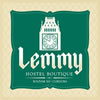The third day started off with discussion on art and pedagogy (mostly in education) in a debate that itself became a learning point for me because it allowed me to engage in a critical interpretation of social, political and cultural reality in Latin America as experienced by the other residents. I decided to take an onlooker’s position in the debate for two reasons, one for the fact that for someone to comment on the current political and educational events taking place in Latin America you need to be aware of the history and the structure and dimensions of the political, social and power hierarchies that dominate the field of education. And secondly, to join this debate as European citizen with a different background and being the beholder of the values and education that are generally looked up as the model for success, I would have come across superior if not even arrogant discussing the problems that I personally have no experience of. I also strongly belief that there are interventions that may work in one country such as Finland, but that may be extremely difficult to implement in Latin America, one example being education.
The discussion on the crisis in contemporary art education was not something completely new to me though. The 1999 Bologna Declaration did shape the contemporary education system in Europe shifting more attention on the necessity to reconsider art in terms of the specific knowledge it pursues and generates. It is possible for the art academies as institutions generating knowledge to strategically enter into social discourse (think about social media) and use it as a platform to present the visions of the world. Rather than using a curriculum style teaching at the university level an emphasis on conversation and discussion between professors and students may embark more production and collaborations in art, and cultural enlargement of the local community.



